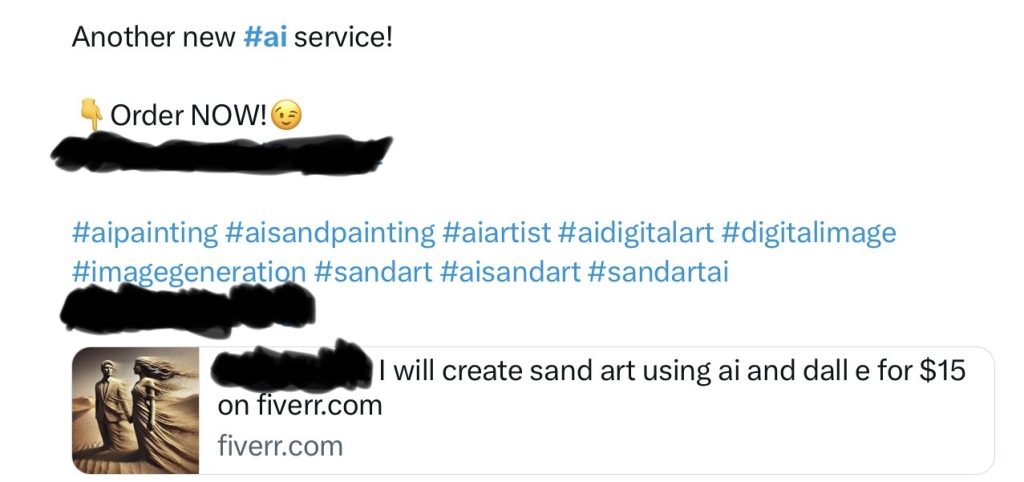I’ve always lived in the space between two worlds—creativity and technology. I’ve worked in information technology, navigating systems, coding and streamlining processes, but I’m also a deeply creative person. I love creating, I write poetry and short stories, I paint, I craft, I cook. I photograph. I do weird stuff. I feel in some ways people have shifted to consuming content online rather than creating. Although in fairness sometimes online content might inspire others to create. I love seeing ideas come to life, and watching skilled people bring their craft into the world.
Lately, though, I’ve been thinking about this question Why are we so quick to take the human element out of creation? Why is it seen as a victory that A.I can generate art, music, videos, and writing? Why do we celebrate efficiency over the joy of making something real? I’ve seen people sharing their A.I. created images and videos, with great excitement and achievement- which I don’t really understand. Anyone can prompt an image generator (so the skill isn’t in “creating artwork” but in prompting). Of course if you want someone else to do the prompting plenty of “services” exist for someone to do the prompting for you, removing yourself even further from the process. (blacked out the name as I’m not looking to prompt their service)

I understand that technology moves forward. I understand that A.I makes things faster, cheaper, more scalable and can help small and solo business owners. But not everything in life needs to be efficient. Some things are valuable simply because of the time, thought, and care that go into them. Two examples Rubens Guitars and Simitrie
Take something as simple as writing content for a small business. A.I can generate a blog post, a product description, or a social media caption in seconds. It’s quick and functional. But compare that to a business owner sitting down to write about their work—their passion, their customers, their journey. There’s something different about a post that comes from real experience, from someone who cares about what they do.The same is true for video- A.I. can do that but compare it to a live video of a person talking straight to the audience about their latest failure for example. The real connects in a way that an AI-generated paragraph never truly can.
However we do seem determined to strip that away for efficiency- churning out more and more content. Despite the fact that theres already an overload of information out there.

I don’t know when we decided that creative work should be streamlined like factory production. Creating is one of the most joyful, human experiences we have. It’s about exploration, problem-solving, and self-expression. It’s about making something not because it’s the most efficient way to get from A to B, but because the process itself is worth it.
A.I is here, and it’s useful. But I still believe in the value of real people making real things. I still believe in craftsmanship, in skill, in creativity for its own sake. Because sometimes, the best things in life aren’t the ones that were made quickly or cheaply. They’re the ones that were made with care.
A lot of small business owners start their businesses because they love making something—whether that’s a product, a service, or an experience. But over time, the pressure to be more efficient, more scalable, and more visible online can start to strip away the joy of the work itself. A.I tools promise shortcuts, and while they can be useful, they also raise a big question: What’s worth maintaining in your business, even if it takes more time?
Writing your own content, handcrafting your own products, making your own marketing materials—these things take effort, but they’re often where the soul of a business lives. People don’t just buy products; they buy stories, connections, and human experiences. A.I can replicate the output of creativity, but it can’t replicate the feeling behind it.
So maybe the real takeaway here is that not everything in business should be optimised for efficiency. Some things—like telling your own story, sharing your voice, or crafting something hand—are worth doing the slow way. Because ultimately, that’s what makes a small business feel real, human, and different from everything else out there.
